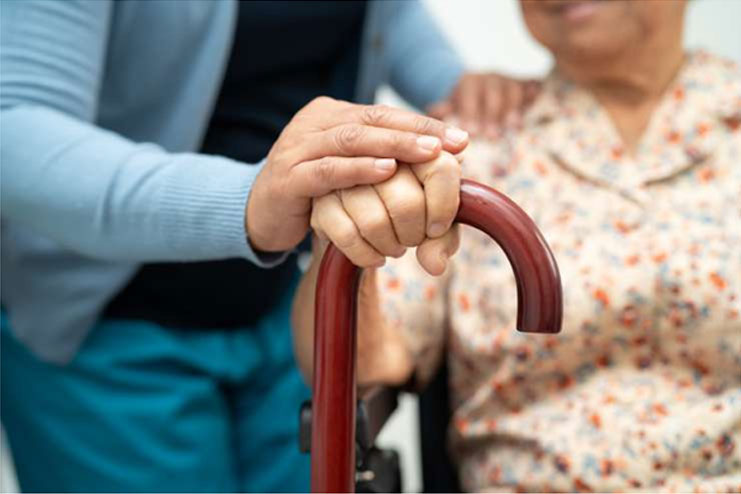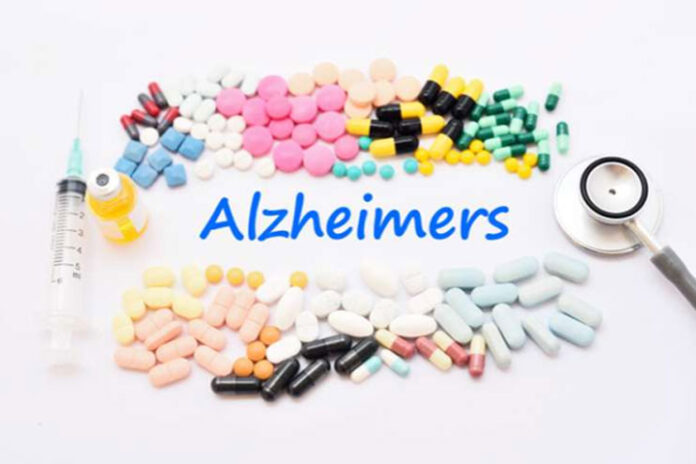Affiliate Disclaimer
Some links in this article are affiliate links. We may earn a small commission if you make a purchase through these links, at no extra cost to you. We only recommend products we find useful to our readersAlzheimer’s quietly erodes memory, changes personality, and eventually affects every aspect of a person’s life. It impacts millions of people, yet its consequences are frequently hidden from the general public, leaving families and caregivers with a tremendous, invisible burden.
President Ronald Reagan launched November as Alzheimer’s Disease Awareness Month in 1983, and it has since grown into a national campaign to raise awareness of dementia in general and Alzheimer’s disease in particular. These initiatives reduce stigma, close knowledge gaps, and give affected individuals resources.
In this article, we review essential tips for family members and caregivers supporting patients with Alzheimer’s disease.
Tips for Caregivers – Caring for a Loved One with Alzheimer’s:

In the United States, millions of Americans care for friends or family members who have Alzheimer’s disease or similar dementia. Providing care for a loved one with Alzheimer’s disease may be highly fulfilling and challenging at the same time.
By implementing efficient techniques, caregivers can improve communication, control behaviors, and care for their well-being.
1. Use Effective Communication Strategies:
Your attitude and body language convey your thoughts and feelings more effectively than words. It takes empathy and simplicity to communicate with someone with Alzheimer’s. Speaking to your loved one in a kind and respectful way will help to create a pleasant atmosphere. Give them time to process the information by dividing it into manageable chunks. To deliver your message and demonstrate your affection, use your body language, tone of voice, and your facial expressions. Remember that active listening and patience are essential; give them time to react, even if it takes a little longer.
2. Distract And Redirect When Things get Tricky:
If your loved one starts to act irritable or unhappy, consider shifting the topic or setting. For instance, take them for a stroll or ask them to assist you. Establishing an emotional connection with the person before redirecting is critical.
3. Bring Back Fond Memories Of The Past:
Reflecting on the past is frequently calming and reassuring. Many individuals with dementia can vividly recall their lives forty-five years prior, but they may not be able to remember what happened forty-five minutes ago. As a result, refrain from posing queries that depend on short-term memory, like “What did you have for lunch?” Try asking broad inquiries about the person’s distant past instead; they are more likely to remember this information.
4. Manage Challenging Behaviors:
Unexpected actions, such as violence or confusion, can be brought on by Alzheimer’s disease. Frustration or environmental variables frequently bring on these behaviors. An effective way to calm the situation is to maintain composure and softly redirect their focus when anything like this occurs. By way of illustration, if they are upset about something familiar but have misplaced it, bringing them a soothing object can help them concentrate their energies. If you observe patterns, you can discover triggers you can manage in advance, producing a more peaceful atmosphere.
5. Make Self-Care a Priority:
Providing care for people is a tough job, which is why self-care is crucial. You can maintain energy and resilience by taking regular breaks, making time for hobbies, and engaging with others. Consider reaching out for assistance through online communities, local support groups, or hotlines to discuss your experiences and acquire new perspectives. When you care for yourself, you cultivate the strength necessary to care for the person you care about.
Local Resources and Support Services

Alzheimer’s caregiving can be difficult, but there is a wealth of online and local services available to help. These crucial resources and services help caregivers obtain care, connect with others, and find direction.
Numerous cities have Alzheimer’s Associations that offer a multitude of resources. These organizations provide instructional sessions, support groups, and activities specifically designed for Alzheimer’s patients and their caregivers. For instance, local chapters of the Alzheimer’s Association offer both in-person and online support groups for caregivers to exchange stories, get information, and feel less alone. Check out their Community Resource Finder to find services and support groups in your area.
Websites like the Family Caregiver Alliance offer Alzheimer’s care-specific articles, advice, and interactive tools. The Alzheimer’s Association also hosts a free online community called AlzConnected, where caregivers can connect with others going through similar struggles, exchange advice, and ask concerns. Apps such as CareZone and Alz You Need to provide resources, reminders, and organizational features to manage caregiving responsibilities effectively.
For the mental and physical well-being of caregivers, taking breaks is essential. Adult day programs and short-term in-home care are examples of respite care services that offer dependable assistance to allow caregivers to rest. To locate nearby respite providers, use the directory provided by the ARCH National Respite Network. To guarantee that caregivers receive the rest they require, several Alzheimer’s associations also help locate and set up these services.
Alzheimer’s research is still going strong, but creating therapies and, ideally, a cure requires substantial money. Contributions to groups like the Alzheimer’s Foundation of America directly fund family and caregiver services and research projects. Additionally, you can support laws that give Alzheimer’s research and patient care priority by participating in advocacy activities through the Alzheimer’s Impact Movement.
Conclusion
It is necessary to assist caregivers and raise knowledge about Alzheimer’s disease to establish a compassionate, well-informed society that appreciates and elevates those who are afflicted with this challenging condition. Every act of awareness or advocacy helps reduce caregivers’ load and puts us closer to making significant advancements in Alzheimer’s care and research.
Caregivers carry an enormous amount of responsibility on their shoulders. Think about sharing your story, going to a local event, or contacting the resources available if you or someone you know has been affected by Alzheimer’s.
References
- https://www.alzheimers.gov/life-with-dementia/tips-caregivers
- https://www.helpguide.org/aging/dementia/tips-for-alzheimers-caregivers
- https://www.healthline.com/health/alzheimers/alzheimers-care
- https://publichealth.jhu.edu/2023/caring-for-caregivers-of-people-with-alzheimers-disease
- https://www.caregiver.org/resource/caregivers-guide-understanding-dementia-behaviors/
- https://www.nia.nih.gov/health/alzheimers-caregiving/alzheimers-caregiving-caring-yourself
- https://www.healthline.com/health/alzheimers/alzheimers-care#tips
- https://www.alzheimers.gov/life-with-dementia/tips-caregivers
- https://health.clevelandclinic.org/alzheimers-caregiver-tips
- https://alzheimer.ca/en/help-support/im-caring-person-living-dementia/looking-after-yourself/reducing-caregiver-stress
- https://www.aarp.org/caregiving/health/info-2024/dementia-caregiver.html
- https://www.alz.org/
- https://www.communityresourcefinder.org/
- https://www.caregiver.org/
- https://alzconnected.org/
- https://www.alzyouneed.com/
- https://carezone.com/
- https://archrespite.org/
- https://act.alz.org/site/SPageServer/?pagename=walk_homepage
- https://alzfdn.org/
- https://alzimpact.org/
In this Article


















